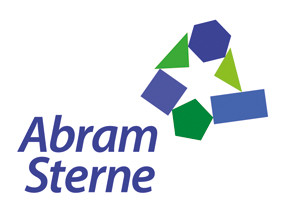Not knowing the future and how to live with it.
The pandemic has not only affected many of us physically, but it is impacting on many more of us emotionally. We are scared of the uncertainty, of not knowing when this will end. What can we do during this time to more easily cope with our anxiety?
In a fit of radical honesty, when I asked Abi to marry me, I acknowledged a truth: while I loved her at that moment with all of my heart, I could not guarantee what I would feel in five years. I knew what I was feeling at that moment and hoped it would predict the future, but I had to acknowledge that there was no way to really know what the future would bring. Despite this uncertainty, I thought it was a good idea to make that leap of faith and propose living the rest of our lives together. The truth is that despite the control we have over much of how we live, there is much more uncertainty than we like to recognize.
Most of the time, our response to uncertainty - to not know -- is to become deeply anxious. Today, with the world health crisis, many are experiencing profound anxiety.
Let’s look at the way we control and have fixed expectations of our lives. We live in the homes we choose, participate in the communities we join, and spend time with the friends we make. We buy food from a variety of places we have become accustomed to, and expect to get whatever we want whenever it suits us. We go about our daily lives with buses, trains and planes get us to where we need to go without too much delay. It is the structure of our everyday lives, that for most people represents what it actually means to live. It is these “knowns” that make us feel safe.
During the pandemic, we are experiencing the replacement of our regular structure by uncertainty and fear. Our relationship to the unknown is what drives a lot of our less pleasant behaviors. Some people become tense, which is reflected in angry and frustrated outbursts. Others become frenetic with pent up energy with nowhere to run. Others become frozen, paralyzed into a binge-watching stupor.
These are the classic fight, flight, fright responses to perceived threat. Without the everyday safety systems, we feel exposed and vulnerable, which further leads us down the path of anxiety. This is true for all of us. From grandparents to grandchildren. We are all missing our steady daily lives in which we can be sure of our next paycheck; know that we can work while our children are taken care of in school; celebrate or commemorate with friends and family.
The time of coronavirus exposes a central tension that is actually always present, but that we normally expend much energy avoiding through timetabled lives. The core text of Rosh Hoshana and Yom Kippur prayers points out this contradiction of our everyday lives, that while we arrange our lives with routine and structure, that we actually do not know the following:
“[On Rosh Hashanah will be inscribed and on Yom Kippur will be sealed] – how many will pass from the earth and how many will be created; who will live and who will die; who will die after a long life and who before his time; who by water and who by fire, who by sword and who by beast, who by famine and who by thirst, who by upheaval and who by plague, who by strangling and who by stoning. Who will rest and who will wander, who will live in harmony and who will be harried, who will enjoy tranquility and who will suffer, who will be impoverished and who will be enriched, who will be degraded and who will be exalted.”
I am not making a theological point here. This is not about God knowing the future, but rather that this prayer is a deep reminder of our fundamental state of unknowing. The things that feel so important in our lives absolutely cannot be guaranteed despite how much we might wish it so.
Judaism does not want us to be overwhelmed by this unknowing state, but rather encourages us to be in an oscillating rhythm between acceptance of uncertainty and filling our lives with structure in order to live with it. This is an important psychological insight: daily rituals allow us to mark the passing of time in a structured fashion and to live with uncertainty. At the same time when we touch the uncertainty and the inherent limitations of our lives, we can imbue our daily structures with a powerful sense of meaning and purpose. That is the point being made by the prayer: value what you have now, for you do not know what will happen tomorrow.
It is the same for our interpersonal relationships. Our daily acts to each other need to be imbued with meaning which is provided by the uncertainty of not knowing when the relationship will end. That was my commitment to Abi: to have faith that our relationship will continue through the small acts and moments of love each day.
And this is a solution to how we live in lock down. Structure every day. Get up, get dressed, look ready to live. Follow routines whether you live alone or with others. Schedule many moments, and then these points of time can become opportunities for imbued meaning. We do not know when this will end. We do not know who will be sick or who will be healthy. We do not know who will live or who will die. This is a time of great uncertainty. Let’s use it to make details of everyday life meaningful.
